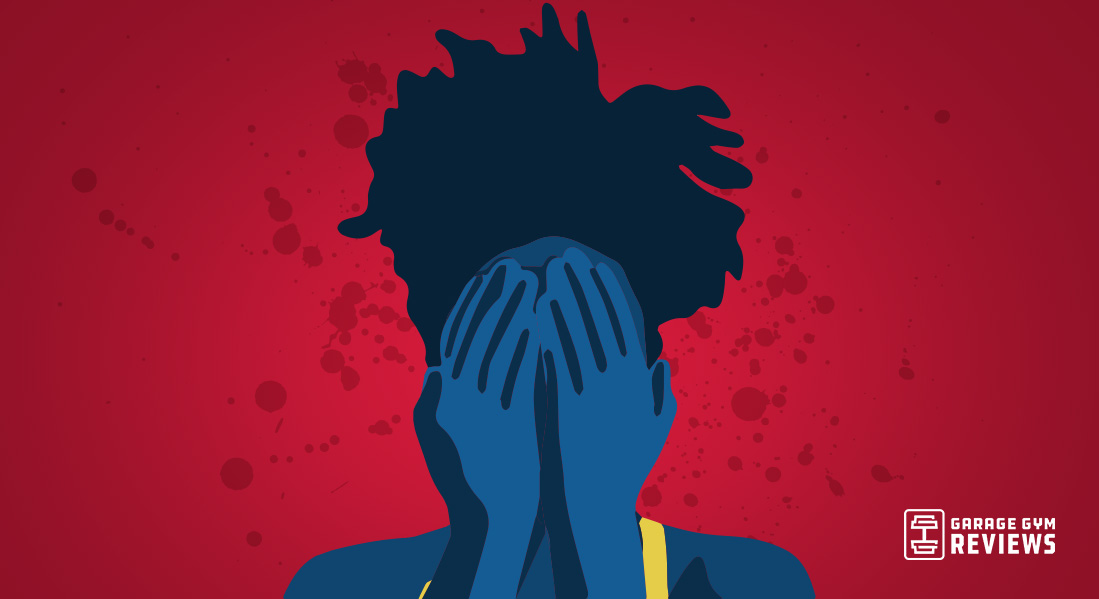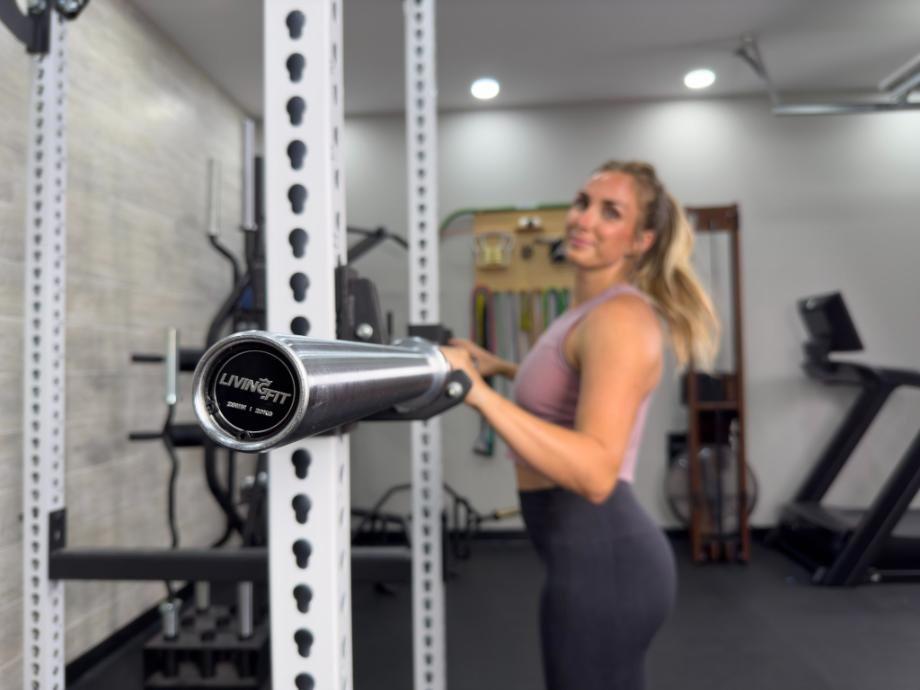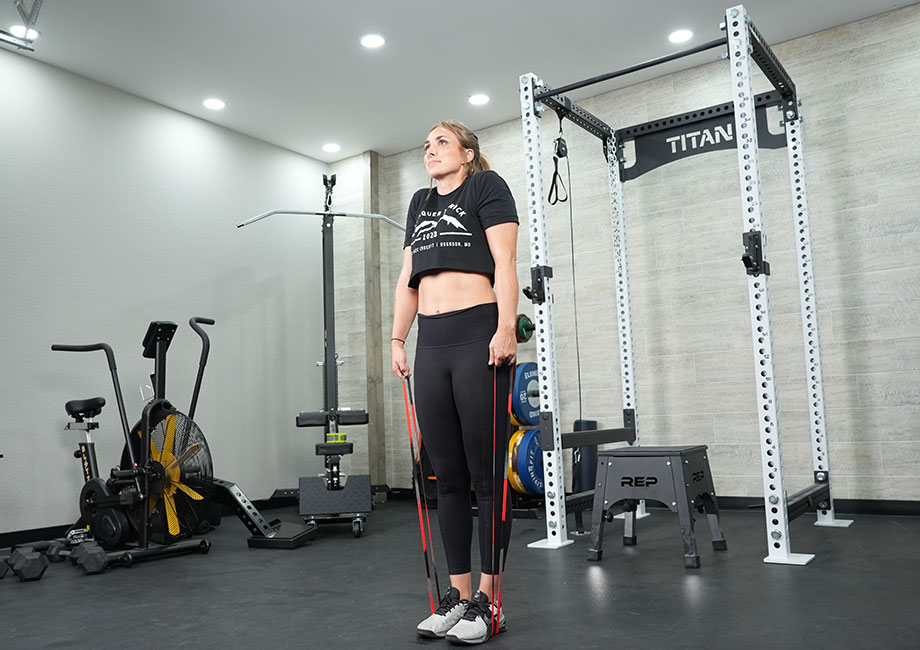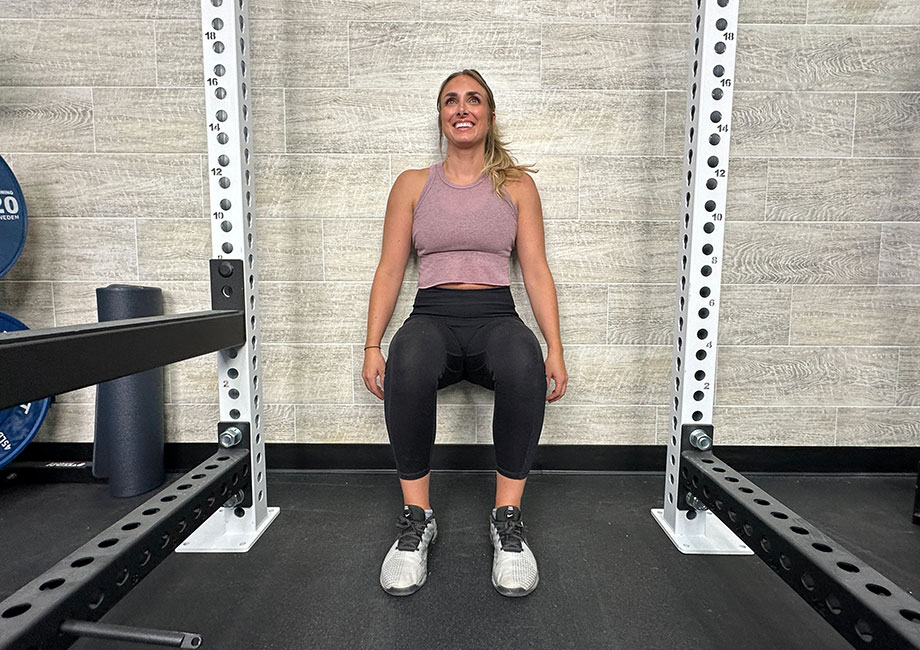If there’s one dietary supplement to invest in and actually reap the benefits, it’s creatine. Oh, and protein powder if you aren’t consuming enough high-protein foods.
The International Society of Sports Medicine1 (ISSN) reports, “Creatine monohydrate remains one of the few nutritional supplements for which research has consistently shown has ergogenic [enhancing physical performance] benefits.”
There’s gotta be a catch, though… Right?
As with any supplement, there can be trade offs, but is creatine headaches one of them? Join us as we explore if creatine causes headaches and tips to help prevent them if so.
RELATED: Best Creatine for Women
Medical disclaimer: This article is intended for educational and informational purposes only. It is not intended as a substitute for medical advice. For health advice, contact a licensed healthcare provider.
What Is Creatine?
Creatine is a compound the body can create from nonessential amino acids—glycine, arginine, and methionine—in the liver, pancreas, and kidneys. It’s naturally found in red meat and seafood and sourced from creatine supplements, including the widely popular and studied form creatine monohydrate1.
RELATED: What Is Creatine?
Creatine is primarily stored in the skeletal muscles as phosphocreatine, which the body breaks down into adenosine triphosphate (ATP) for quick energy, especially during high-intensity activities and to initiate muscle contraction.
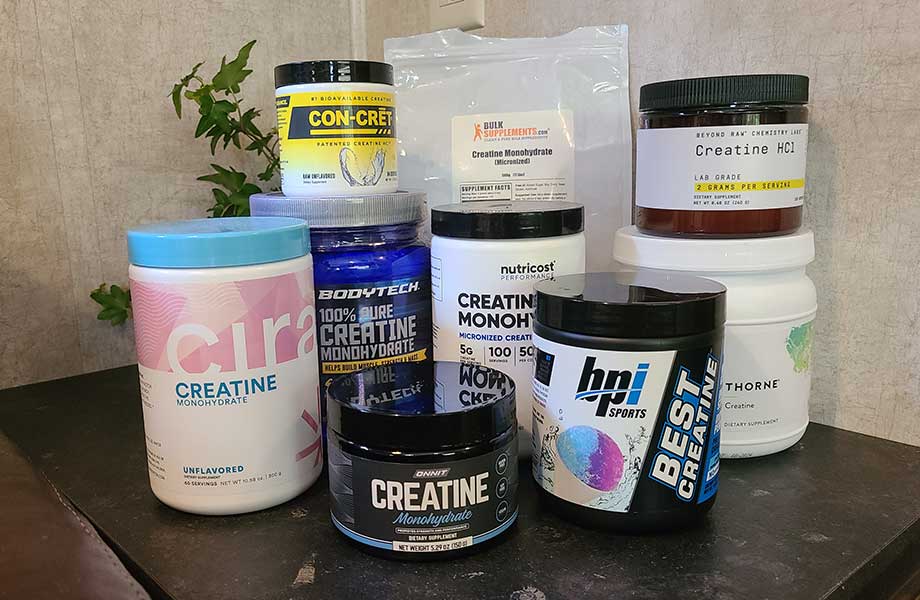
The ability to increase the capacity of ATP and energy produced during heavy, anaerobic exercise is why bodybuilders and fitness enthusiasts lean on creatine supplementation. The evidence-based benefits of creatine seem to outweigh the risks, but some potential side effects are worth exploring—but are headaches among them?
Potential Side Effects of Creatine Supplementation
Google Scholar your way through “creatine supplementation side effects,” and you’ll find creatine is consistently deemed safe and effective, including in a 2021 update published in Current Sports Medicine Reports2.
Moreover, the International Society of Sports Nutrition1 proposes both short-term and long-term creatine supplementation as safe and well-tolerated in healthy individuals throughout the lifespan—even in children3 and older adults.
However, despite most reputed creatine side effects being attributed to high doses or debunked as myth, the most common concerns include:
- Weight gain, primarily due to fluid retention and subsequent water weight gain in lean mass rather than body fat.
- Digestive issues, including bloating and stomach pain, mainly when containing a high dose of 10 grams based on this 2008 study.4
- Muscle cramps and dehydration, although that myth5 has since been debunked. Research6 even hints creatine may help prevent muscle cramps and improve heat tolerance when taken properly.
- Kidney damage, as creatine supplementation has been speculated to overwhelm the kidneys. However, a meta-analysis7 shows that creatine supplementation does not cause kidney damage.
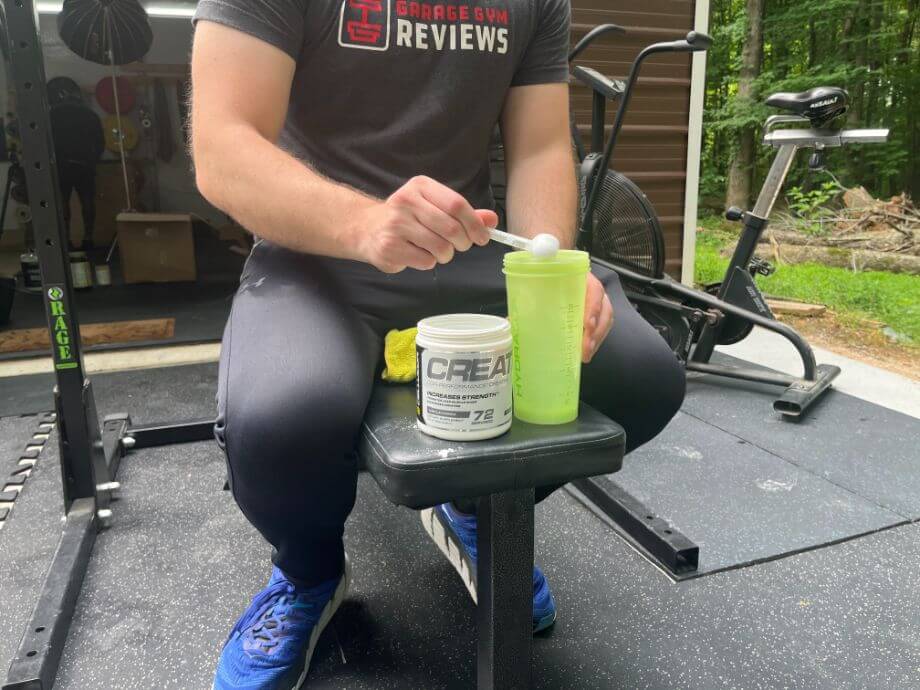
If you noticed creatine headaches didn’t make the list, it’s because no sound evidence shows creatine is directly responsible for them and it’s not as wide-spread of a myth as some of the others. Some research even suggests creatine may reduce headaches—more on this coming up, so stick around for that!
This isn’t to say creatine users don’t experience headaches, but other contributing factors likely cause them. Let’s explore possible headache culprits if you experience headaches alongside your creatine dose.
How Might Creatine Cause Headaches?
While creatine doesn’t seem to cause headaches directly, people who take creatine are primarily active in sports, bodybuilders, or interested in optimizing their fitness and health. These individuals may experience headaches while taking creatine due to sports and fitness-related headache risks.
Headaches in Sports
A review published in Headaches8 reports up to 3.8 million people per year have a sports-related mild traumatic brain injury (TBI) frequently followed by various headaches. Moreover, a recent 2023 longitudinal study9 suggests a history of concussions significantly adds to the headache burden among American adolescents and young adults.
Sports-related headaches may be directly related to traumatic concussions and head injuries. Non-traumatic headaches associated with sports also include:
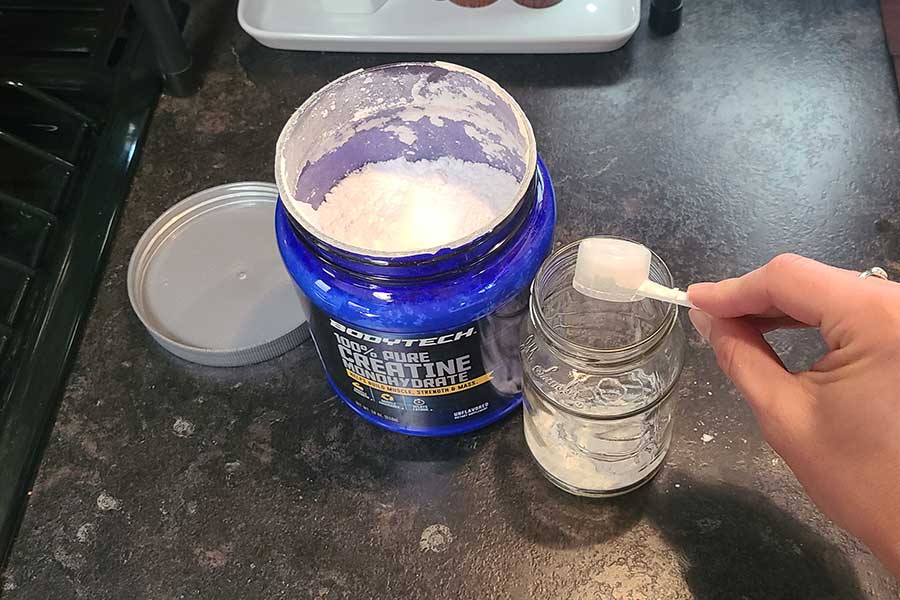
- Exertional headaches evoked by sustained activities—like running and rowing—that become a greater risk with high altitude, hot weather, decreased fluid intake, and extreme exertion. Increased muscle power and endurance are benefits of creatine, as you’ll soon learn, so this could also intensify exertion.
- Weightlifter’s headaches—also known as cough headaches—triggered by a Valsava maneuver10, or essentially holding a big breath to increase intra-abdominal pressure and spine stability while lifting.
- External compression headaches, which can be caused by external pressure to the forehead and scalp like a tight hat, football helmet, or swim goggles.
Again, this is simply to say athletes are at great risk of headaches and theorizing they might supplement with creatine. (Correlation does NOT mean causation.)
RELATED: Types of Creatine
Other Fitness-Related Headache Risks
Fitness-minded folks may also experience headaches while taking creatine due to other factors such as:
- Hydration status: Despite inadequate evidence showing creatine causes dehydration, active individuals taking creatine may under- or overhydrate, which could trigger a headache.
- Training environment: As mentioned with exertional headaches, high altitude and hot weather training environments can increase headache risk.
- Caffeine intake: Headaches are among the most common pre-workout side effects athletes might experience. Caffeine can also cause insomnia, further increasing headache risk.
- Muscle tension: Muscle tension, especially in the neck and shoulders, can induce tension-type headaches11.
And, of course, we wouldn’t present risks without offering solutions! Fortunately, there are steps you can take and habits to adopt to help prevent “creatine headaches.”
How to Prevent Creatine Headaches
Because underlying health conditions can cause secondary headaches, you should first and foremost consult with a healthcare professional for your utmost safety. With that out of the way, these tips may prevent the risk of headaches and other creatine side effects:
- Rethink the creatine loading phase, and adjust your creatine dosing if you’re still experiencing symptoms. (Here’s how to take creatine safely and effectively.)
- Stay hydrated by drinking enough water and replenishing with the best electrolyte powders as needed, especially if training in intense weather environments.
- Evaluate your pre-workout; some contain creatine, and you might consume more than needed. Also watch out for the caffeine content, especially if you consume from other sources like coffee, and consider trying out one of the best stim-free pre-workouts.
- Dress appropriately and pay extra attention to the climate you’ll be training in to avoid overheating.
- Don’t overexert yourself, especially if you’re not properly recovered, warmed up, hydrated, or experienced in a hot or high-altitude training climate.
Can Creatine Prevent Headaches?
Rather than causing headaches, creatine may actually help reduce them.
A small pilot study12 shows creatine offers neuroprotective effects in children and adolescents with traumatic brain injuries. After creatine administration, specifically 0.4 grams of creatine per kilogram of body weight for six months—researchers found improvements in various parameters—like headaches, dizziness, and fatigue—in all patients (without side effects)!
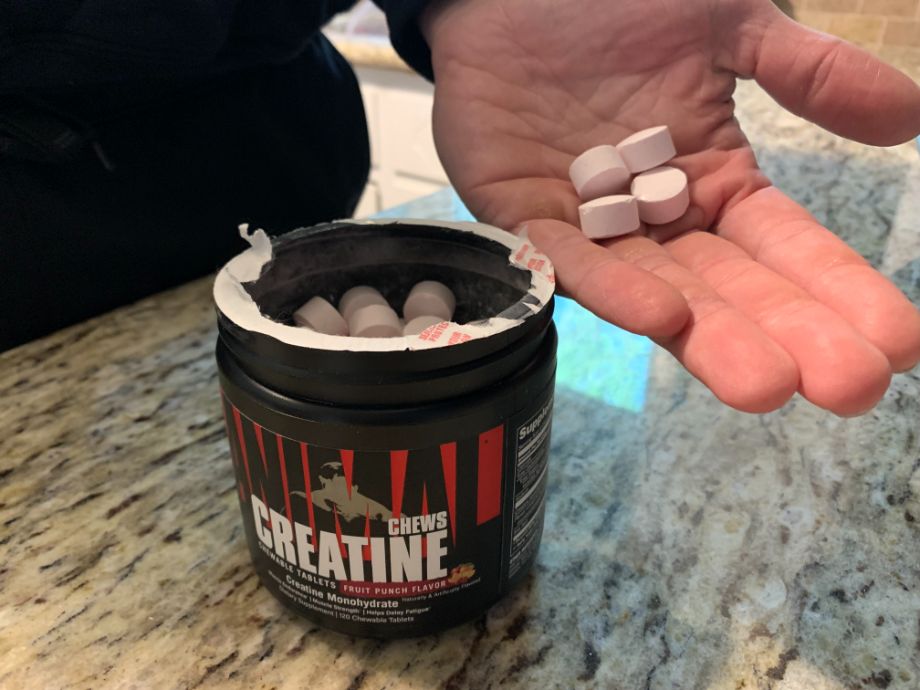
A letter to the editor13 of the pilot study further suggests creatine loading—20 grams per day—significantly increases brain creatine levels in healthy individuals. The researchers also encourage that this should be verified in chronic migraine patients.
Moreover, the ISSN1 feels that government legislatures and sport organizations who restrict and discourage creatine use may place athletes at greater risk, particularly in contact sports with a greater risk of head trauma and neurological injury.
The Benefits of Creatine
We can’t discuss potential side effects without addressing evidence-based creatine benefits, and many studies14 confirm it boosts fitness, athletic performance, and overall health. GGR senior staff writer and certified nutrition coach Amanda Capritto outlines 10 creatine benefits that’ll convince you to add it to your supplement stack:
- Increases muscle strength, even in as little as four weeks15
- Increases muscle power due to creatine’s role in ATP synthesis
- Improves muscular endurance, particularly in high-intensity, short-burst movements during strength training
- Produces more muscle growth in tandem with an adequate resistance training regimen
- Expedites recovery time16 by reducing overall muscle damage and post-workout inflammation
- Might reduce dehydration and muscle cramps despite alterations in water retention
- May help stabilize blood sugar17, especially when combined with aerobic training
- May be neuroprotective with neurological benefits, including in the treatment of Parkinson’s disease18
- Improves brain function and health19 with more pronounced benefits in a challenged state, such as sleep deprivation
- Fights fatigue, including general tiredness and fatigue during exercise
Overall, supplementing with creatine increases creatine muscle stores and is ideal for increasing muscle mass and size while improving physical performance.

Creatine Headaches: Final Thoughts
While some consumers report creatine headaches, no sound evidence proves creatine directly causes them. In fact, creatine may even reduce headaches!
But if headaches occur while taking creatine, they’re more likely related to dehydration, overexertion, overheating, and other risk factors. Athletes are also more likely to experience sports-related headaches related to traumatic concussions and head injuries.
While creatine might seem too good to be true, it’s one dietary supplement with a glowing track record backed by data. It can enhance your physical performance and may even augment your overall health, and comes with very few risks when dosed to individual needs.
Note: It’s essential to consult your doctor if headaches persist, especially if taking appropriate steps to prevent headache-related risks.
Creatine Headaches: FAQs
What is the biggest side effect of creatine?
The International Society of Sports Nutrition Position Stand1 on the safety and efficacy of creatine supplementation suggests weight gain is the only consistently reported side effect in the literature. However, the weight gain is water weight gain, often short-lived, and unlikely to occur if following a low-dose yet effective protocol—about 3 to 5 grams daily.
Can creatine make you feel lightheaded?
While lightheadedness has been reported when taking creatine, there’s no actual evidence to confirm it causes it. Lightheadedness is, however, common after a concussion20, and it may be triggered by dehydration, low blood sugar, and positional changes like standing up.
How much water should I drink with creatine?
How much water you should drink with creatine mostly depends on individual fluid needs. Generally, drink at least 8 ounces of water with a 3- to 5-gram creatine dose on top of routine water intake. If you’re creatine loading, drink at least 32 to 40 ounces of water with the supplement doses in addition to your daily water intake.
What happens when you stop creatine?
When you stop taking supplemental creatine, the levels in your body will start to decrease in its absence. How long creatine stays in your system depends on several factors, but research21 shows stopping creatine and reducing training volume may significantly reduce muscle endurance after 12 weeks. However, no effects on the rate of strength, endurance, and lean tissue loss are noted in this study.
These statements have not been evaluated by the Food and Drug Administration. This product is not intended to diagnose, treat, cure, or prevent any diseases.
References
- Kreider RB, Kalman DS, Antonio J, et al. International Society of Sports Nutrition position stand: safety and efficacy of creatine supplementation in exercise, sport, and medicine. J Int Soc Sports Nutr. 2017;14:18. Published 2017 Jun 13. doi:10.1186/s12970-017-0173-z
- Hall M, Manetta E, Tupper K. Creatine Supplementation: An Update. Curr Sports Med Rep. 2021 Jul 1;20(7):338-344. doi: 10.1249/JSR.0000000000000863. PMID: 34234088.
- Jagim AR, Kerksick CM. Creatine Supplementation in Children and Adolescents. Nutrients. 2021;13(2):664. Published 2021 Feb 18. doi:10.3390/nu13020664
- Ostojic SM, Ahmetovic Z. Gastrointestinal distress after creatine supplementation in athletes: are side effects dose dependent? Res Sports Med. 2008;16(1):15-22. doi: 10.1080/15438620701693280. PMID: 18373286.
- Dalbo VJ, Roberts MD, Stout JR, et al. Putting to rest the myth of creatine supplementation leading to muscle cramps and dehydration. Br J Sports Med. 2008 Jul;42(7):567-73. doi: 10.1136/bjsm.2007.042473. Epub 2008 Jan 9. PMID: 18184753.
- Greenwood M, Kreider RB, Melton C, et al. Creatine supplementation during college football training does not increase the incidence of cramping or injury. Mol Cell Biochem. 2003 Feb;244(1-2):83-8. PMID: 12701814.
- de Souza E Silva A, Pertille A, Reis Barbosa CG, et al. Effects of Creatine Supplementation on Renal Function: A Systematic Review and Meta-Analysis. J Ren Nutr. 2019 Nov;29(6):480-489. doi: 10.1053/j.jrn.2019.05.004. Epub 2019 Jul 30. PMID: 31375416.
- Evans RW. Sports and Headaches. Headache. 2018 Mar;58(3):426-437. doi: 10.1111/head.13263. Epub 2018 Feb 5. PMID: 29405284.
- Ali M, Asghar N, Hannah T, et al. A multicenter, longitudinal survey of headaches and concussions among youth athletes in the United States from 2009 to 2019. J Headache Pain. 2023 Feb 8;24(1):6. doi: 10.1186/s10194-022-01528-3. PMID: 36755244; PMCID: PMC9909942.
- Hackett DA, Chow CM. The Valsalva maneuver: its effect on intra-abdominal pressure and safety issues during resistance exercise. J Strength Cond Res. 2013 Aug;27(8):2338-45. doi: 10.1519/JSC.0b013e31827de07d. PMID: 23222073.
- Shah N, Hameed S. Muscle Contraction Tension Headache. [Updated 2022 Oct 24]. In: StatPearls [Internet]. Treasure Island (FL): StatPearls Publishing; 2023 Jan-. Available from: https://www.ncbi.nlm.nih.gov/books/NBK562274/
- Sakellaris G, Nasis G, Kotsiou M, et al. Prevention of traumatic headache, dizziness and fatigue with creatine administration. A pilot study. Acta Paediatr. 2008;97(1):31-34. doi:10.1111/j.1651-2227.2007.00529.x
- Ostojic SM. Creatine loading for chronic migraine? Cephalalgia. 2020 Jul;40(8):878-879. doi: 10.1177/0333102420931055. Epub 2020 Jun 2. PMID: 32484061.
- Wax B, Kerksick CM, Jagim AR, et al. Creatine for Exercise and Sports Performance, with Recovery Considerations for Healthy Populations. Nutrients. 2021;13(6):1915. Published 2021 Jun 2. doi:10.3390/nu13061915
- Wang CC, Fang CC, Lee YH, et al. Effects of 4-Week Creatine Supplementation Combined with Complex Training on Muscle Damage and Sport Performance. Nutrients. 2018;10(11):1640. Published 2018 Nov 2. doi:10.3390/nu10111640
- Wax B, Kerksick CM, Jagim AR, et al. Creatine for Exercise and Sports Performance, with Recovery Considerations for Healthy Populations. Nutrients. 2021;13(6):1915. Published 2021 Jun 2. doi:10.3390/nu13061915
- Gualano B, Novaes RB, Artioli GG, et al. Effects of creatine supplementation on glucose tolerance and insulin sensitivity in sedentary healthy males undergoing aerobic training. Amino Acids. 2008 Feb;34(2):245-50. doi: 10.1007/s00726-007-0508-1. Epub 2007 Mar 30. PMID: 17396216.
- Hass CJ, Collins MA, Juncos JL. Resistance training with creatine monohydrate improves upper-body strength in patients with Parkinson disease: a randomized trial. Neurorehabil Neural Repair. 2007 Mar-Apr;21(2):107-15. doi: 10.1177/1545968306293449. PMID: 17312085.
- Forbes SC, Cordingley DM, Cornish SM, et al. Effects of Creatine Supplementation on Brain Function and Health. Nutrients. 2022;14(5):921. Published 2022 Feb 22. doi:10.3390/nu14050921
- Heyer GL, Young JA, Fischer AN. Lightheadedness After Concussion: Not All Dizziness is Vertigo. Clin J Sport Med. 2018 May;28(3):272-277. doi: 10.1097/JSM.0000000000000445. PMID: 28708707.
- Candow DG, Chilibeck PD, Chad KE, et al. Effect of ceasing creatine supplementation while maintaining resistance training in older men. J Aging Phys Act. 2004 Jul;12(3):219-31. doi: 10.1123/japa.12.3.219. PMID: 15263100.


